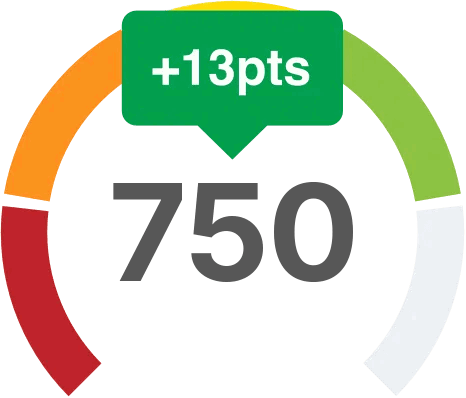Getting a call or letter from a company you’ve never heard of can feel unsettling—especially when they claim you owe them money. In many cases, that company is a junk debt buyer. These businesses purchase old or charged-off accounts from lenders and then try to collect the balance themselves.

Junk debt buyers are not the same as your original creditor, and dealing with them can be confusing. They often purchase debt for pennies on the dollar and use aggressive tactics to recover the full amount. If you’re not careful, you could even end up paying a debt you no longer legally owe.
This article will break down exactly what junk debt buyers are, how they operate, the impact they can have on your credit report and credit score, and the steps you can take to protect yourself.
What Is a Junk Debt Buyer?
A junk debt buyer is a company that purchases overdue or charged-off accounts from credit card issuers, lenders, or even other collection agencies. Instead of working with your original creditor, you now deal with this new company that owns the debt.
These buyers are sometimes called “zombie debt buyers” or “bad debt buyers” because they specialize in accounts that are difficult to collect, often old or already written off as a loss. Once they take over, they attempt to collect the full balance, even though they acquired the account for only a fraction of what you originally owed.
How Junk Debt Buyers Make Money
Junk debt buyers purchase delinquent accounts for pennies on the dollar. For example, a $1,000 credit card balance might be sold to them for $50. Their profit comes from convincing you to pay back some or all of that original balance.
To do this, they may call, send letters, or even file lawsuits. Many rely on the fact that people feel pressure or confusion when contacted, and some may try to collect on accounts that are past the statute of limitations. If they succeed in getting even a small payment, they can often reset the legal clock on the debt, which gives them another chance to pursue collection in court.
Difference Between Junk Debt Buyers and Debt Collectors
Junk debt buyers and debt collectors often get confused, but they play different roles. A junk debt buyer is a company that purchases old or charged-off accounts and then tries to collect the balance for itself. They own the debt outright and keep whatever money they recover.
A debt collector, on the other hand, does not own the debt. Instead, they are hired by the original creditor or a junk debt buyer to collect payments on someone else’s behalf. The money they collect usually goes back to the creditor, while the collector earns a fee or commission for their work.
How Junk Debt Buyers Affect Your Credit Score and Credit Report
When a junk debt buyer takes over your account, they often report it to the three major credit bureaus: Equifax, Experian, and TransUnion. This can lower your credit score, especially if the debt shows up as a new collection entry.
Because debts are frequently sold from one junk debt buyer to another, the same account may appear multiple times on your credit report. This creates even more damage to your credit score. Collections and charge-offs can stay on your credit report for up to seven years, even if the balance is eventually paid.
Paying a junk debt buyer does not automatically erase the negative mark. It simply updates the account to show that it was paid. In some cases, you may be able to negotiate a pay-for-delete agreement, which means the account is removed entirely from your credit report. However, this is not guaranteed, and you should always get the agreement in writing before making any payment.
Your Rights When Dealing With Junk Debt Buyers
Federal law gives you protections against abusive collection tactics. The Fair Debt Collection Practices Act (FDCPA) sets strict rules that junk debt buyers must follow when contacting you.
- Debt validation: You have the right to request proof that the debt is yours and that the company has the legal right to collect it.
- Accurate reporting: They cannot place or keep a debt on your credit report without proper documentation.
- No harassment: They cannot call repeatedly, use threatening language, or contact you at unreasonable hours.
- No false claims: They cannot pretend to be government officials, misrepresent the balance, or threaten arrest.
- Privacy protections: They cannot discuss your debt with friends, family, or your employer without permission.
If a junk debt buyer violates these rules, you can file complaints with the Consumer Financial Protection Bureau or your state attorney general, and in some cases, you may be able to sue for damages.
How the Statute of Limitations Affects Old Debt
The statute of limitations is the legal time limit for how long a creditor or junk debt buyer can sue you for unpaid debt. The timeframe depends on the state you live in, but in most cases it runs between four and six years. Some states extend it longer, especially for certain types of contracts.
If the statute of limitations has expired, the debt is considered “time-barred.” This means the junk debt buyer cannot win a lawsuit against you, even if they still try to collect through calls or letters. Be cautious: making a small payment or admitting the debt in writing can restart the clock, which gives them another chance to take you to court.
What Is Zombie Debt?
Zombie debt is old debt that refuses to disappear. Even if it is past the statute of limitations or already settled, it can resurface when sold from one junk debt buyer to another. Each new buyer may attempt to collect on it as though it were still valid.
This type of debt is especially risky because collectors sometimes pressure people into paying debts they no longer legally owe. The best defense is to request debt validation in writing and check whether the statute of limitations has expired. If the debt is not enforceable, you can cut off communication and prevent it from damaging your credit any further.
Steps to Take If a Junk Debt Buyer Contacts You
When you hear from a junk debt buyer, your first move should not be to pay immediately. A careful approach can protect your money and your credit.
- Verify the company: Ask for the company’s name, address, and license information to confirm they are legitimate by sending them a debt validation letter.
- Review your credit report: Check whether the debt is listed, if it is duplicated, or if the dates line up with the original delinquency. If the debt is not yours or the balance is incorrect, you can dispute it with the junk debt buyer and the credit bureaus.
- Avoid admitting the debt: Do not confirm that the debt is yours until you have received proper validation in writing.
- Decide on your response: If the debt is valid and enforceable, you can negotiate a settlement or payment plan. If it is time-barred, you can refuse to pay.
- Keep detailed records: Save all letters, emails, and notes from phone calls. Documentation can help if the account resurfaces later or if you face a lawsuit.
Taking these steps ensures you stay in control rather than letting the junk debt buyer dictate the process.
Ready to Fix Your Credit? Start Here.
Answer a few simple questions and get a free step-by-step plan to rebuild your credit.

Bottom Line
Junk debt buyers purchase old accounts at a steep discount and try to collect the full balance, often with aggressive tactics. While they can damage your credit score, you have rights that protect you from unfair collection practices.
If you take time to validate the debt, check the statute of limitations, and keep everything in writing, you can avoid costly mistakes. Most importantly, focus on rebuilding your finances after resolving the issue so you do not get trapped in the same cycle again.
Frequently Asked Questions
Can junk debt buyers add interest or fees to my debt?
In most cases, junk debt buyers cannot add new interest or fees that were not part of the original agreement. They can only collect what the original creditor was legally allowed to charge. If you see inflated balances, you have the right to request a detailed breakdown.
How long can a junk debt buyer keep reporting debt to the credit bureaus?
Even if a junk debt buyer purchases the account years later, the seven-year reporting period still begins with the original delinquency date. They cannot restart this reporting period by reselling the debt or by you making a payment.
What should I do if a junk debt buyer threatens to arrest me?
Threatening arrest over unpaid debt is illegal. If this happens, keep records of the communication and report the company to the Consumer Financial Protection Bureau or your state attorney general.
Can paying a junk debt buyer improve my chances of getting approved for credit?
Paying the debt may help over time, especially if it lowers your overall debt load, but it does not erase the negative history from your credit report. Lenders will still see the collection account until it falls off after seven years.
Do junk debt buyers need a license to collect debt?
In many states, yes. Junk debt buyers and debt collectors must be licensed to collect from residents. If they are not licensed in your state, they may not have the legal authority to pursue you for payment.
